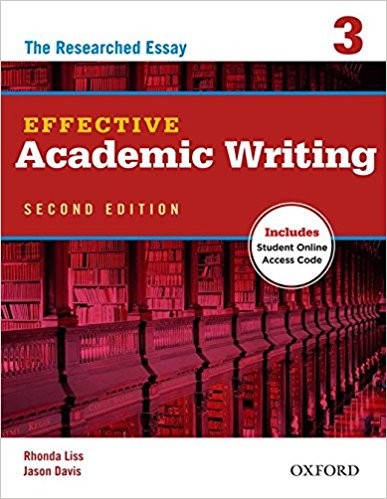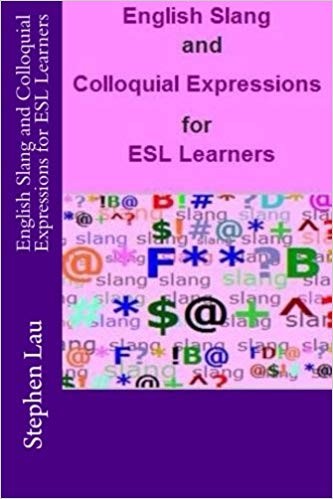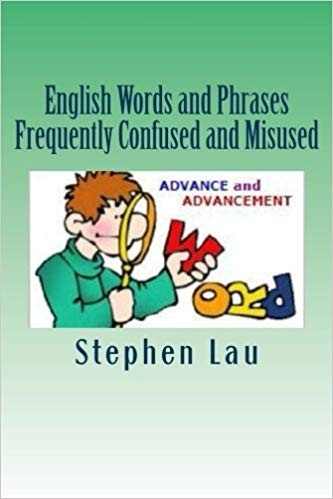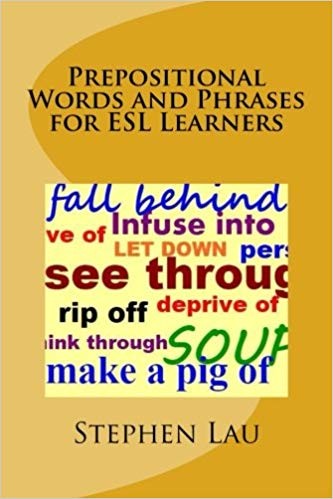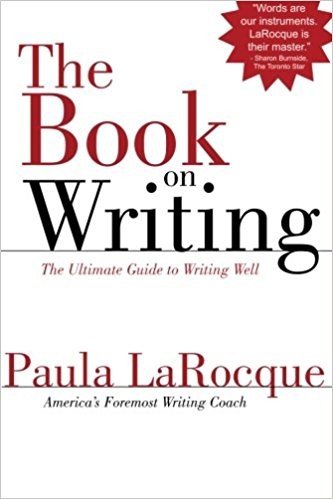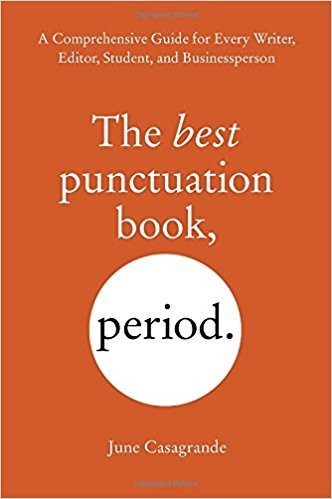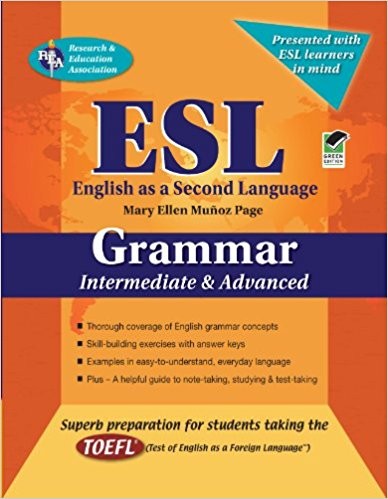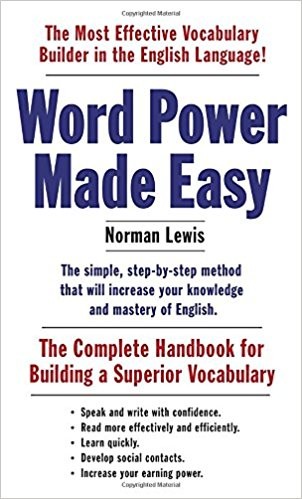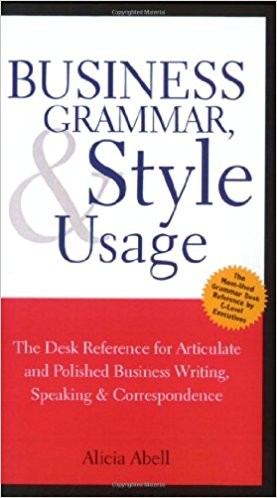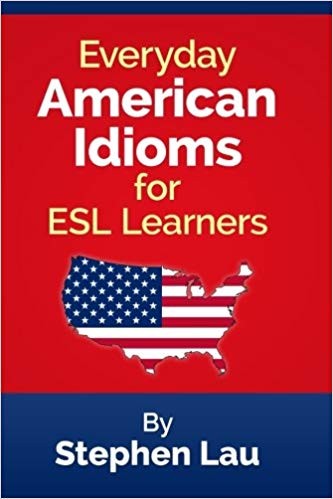
BETTER ENGLISH
For You
Stephen Lau
For You
Stephen Lau




ENGLISH GRAMMAR



Learn and master English from Stephen Lau's web page:
English for everyone from Stephen Lau's Facebook:


Find out more about Stephen Lau:
Find out more about Stephen Lau's books on learning English, wisdom in living, health and longevity:
TYPES OF SENTENCES
1.1. The Simple Sentence
The simple sentence is usually short: it is used to express a simple idea, or to emphasize a point.
e.g. You are right.
e.g. This is easy to do.
Do not use too many simple sentences within a paragraph; otherwise, they may look choppy. Use a simple sentence only to express an idea or to emphasize a point.
1.2. The Compound Sentence
The compound sentence is made up of two or more simple sentences joined together. To join them, you need a coordinate conjunction (e.g. and, but, or , nor, so, yet) A coordinate conjunction means the simple sentences joined together are more or less of equal importance.
e.g. I want to go, and you must come with me.
e.g. You want to go, but I don't want to go with you.
e.g. You can go, or you can stay.
e.g. You cannot eat this, nor can you take it with you.
e.g. This sentence is wrong, so (you) correct it,
e.g. He is tired, yet he does not want to go to bed. ("yet" is stronger than "but")
In addition to using a conjunction, you can also use a punctuation mark, such as a colon ";" to explain, or a semi-colon ";" to replace a conjunction.
e.g. This is difficult to do: there are many problems that come with it.
e.g. I am tired; I do not want to go to bed now. (replacing the conjunction but)
e.g. I like to sing; my brother likes to paint; my sister likes to dance.
1.3. The Complex Sentence
The complex sentence is made up two or more simple sentences joined together by subordinate conjunctions, such as after, before, because, if, since, when, while, although, though. A subordinate conjunction suggests that the simple sentence joined is less important. The complex sentence shows the relationship of ideas, i.e. some are more important, and some are less important.
e.g. After you leave, I shall go to bed. (the focus is more on "going to bed")
Compare: You leave and I go to bed. (the focus is on "leaving" and "going to bed")
e.g. Before you leave, (you) finish the drink. (the focus is more on "finishing the drink")
e.g. I give you this because you are nice.
e.g. If you want this, (you) take it.
e.g. Since this belongs to you, (you) take it.
e.g. You can go when you finish this.
e.g. You must do while there is time.
e.g. Although I am tired, I don't want to go to bed.
e.g. Though it is late, you can stay here for a while.
Stephen Lau
Copyrightę by Stephen Lau
1.1. The Simple Sentence
The simple sentence is usually short: it is used to express a simple idea, or to emphasize a point.
e.g. You are right.
e.g. This is easy to do.
Do not use too many simple sentences within a paragraph; otherwise, they may look choppy. Use a simple sentence only to express an idea or to emphasize a point.
1.2. The Compound Sentence
The compound sentence is made up of two or more simple sentences joined together. To join them, you need a coordinate conjunction (e.g. and, but, or , nor, so, yet) A coordinate conjunction means the simple sentences joined together are more or less of equal importance.
e.g. I want to go, and you must come with me.
e.g. You want to go, but I don't want to go with you.
e.g. You can go, or you can stay.
e.g. You cannot eat this, nor can you take it with you.
e.g. This sentence is wrong, so (you) correct it,
e.g. He is tired, yet he does not want to go to bed. ("yet" is stronger than "but")
In addition to using a conjunction, you can also use a punctuation mark, such as a colon ";" to explain, or a semi-colon ";" to replace a conjunction.
e.g. This is difficult to do: there are many problems that come with it.
e.g. I am tired; I do not want to go to bed now. (replacing the conjunction but)
e.g. I like to sing; my brother likes to paint; my sister likes to dance.
1.3. The Complex Sentence
The complex sentence is made up two or more simple sentences joined together by subordinate conjunctions, such as after, before, because, if, since, when, while, although, though. A subordinate conjunction suggests that the simple sentence joined is less important. The complex sentence shows the relationship of ideas, i.e. some are more important, and some are less important.
e.g. After you leave, I shall go to bed. (the focus is more on "going to bed")
Compare: You leave and I go to bed. (the focus is on "leaving" and "going to bed")
e.g. Before you leave, (you) finish the drink. (the focus is more on "finishing the drink")
e.g. I give you this because you are nice.
e.g. If you want this, (you) take it.
e.g. Since this belongs to you, (you) take it.
e.g. You can go when you finish this.
e.g. You must do while there is time.
e.g. Although I am tired, I don't want to go to bed.
e.g. Though it is late, you can stay here for a while.
Stephen Lau
Copyrightę by Stephen Lau
Singular or Plural
The following sentences are correct, and they illustrate the uses of singular or plural verbs in some common expressions:
e.g. Fifty dollars is a lot of money to me (amount).
e.g. Two weeks of vacation is not enough (time).
e.g. One of the tables was badly damaged in the storm.
e.g. All coming and going after midnight is not allowed (a single idea).
e.g. A number of books were checked out (many).
e.g. The number of students present was great (the figure).
e.g. The greater part of the land was cultivated.
e.g. The greater part of the oranges were bad.
e.g. More than one student was involved.
e.g. Screaming and shouting was heard even inside the house. (a single idea)
Majority is often confusing: it efers to number, not to the amount or quantity.
e.g. The majority of the people were women. (correct)
e.g. The majority of the eggs were bad. (correct)
e.g. The majority of the butter was bad. (incorrect)
e.g. Most of the butter was bad. (correct)
Compare the following:
e.g. The majority of children like sweets. (some do not like)
e.g. Most children like sweets. (children in general like sweets)
Stephen Lau
Copyrightę by Stephen Lau
The following sentences are correct, and they illustrate the uses of singular or plural verbs in some common expressions:
e.g. Fifty dollars is a lot of money to me (amount).
e.g. Two weeks of vacation is not enough (time).
e.g. One of the tables was badly damaged in the storm.
e.g. All coming and going after midnight is not allowed (a single idea).
e.g. A number of books were checked out (many).
e.g. The number of students present was great (the figure).
e.g. The greater part of the land was cultivated.
e.g. The greater part of the oranges were bad.
e.g. More than one student was involved.
e.g. Screaming and shouting was heard even inside the house. (a single idea)
Majority is often confusing: it efers to number, not to the amount or quantity.
e.g. The majority of the people were women. (correct)
e.g. The majority of the eggs were bad. (correct)
e.g. The majority of the butter was bad. (incorrect)
e.g. Most of the butter was bad. (correct)
Compare the following:
e.g. The majority of children like sweets. (some do not like)
e.g. Most children like sweets. (children in general like sweets)
Stephen Lau
Copyrightę by Stephen Lau
